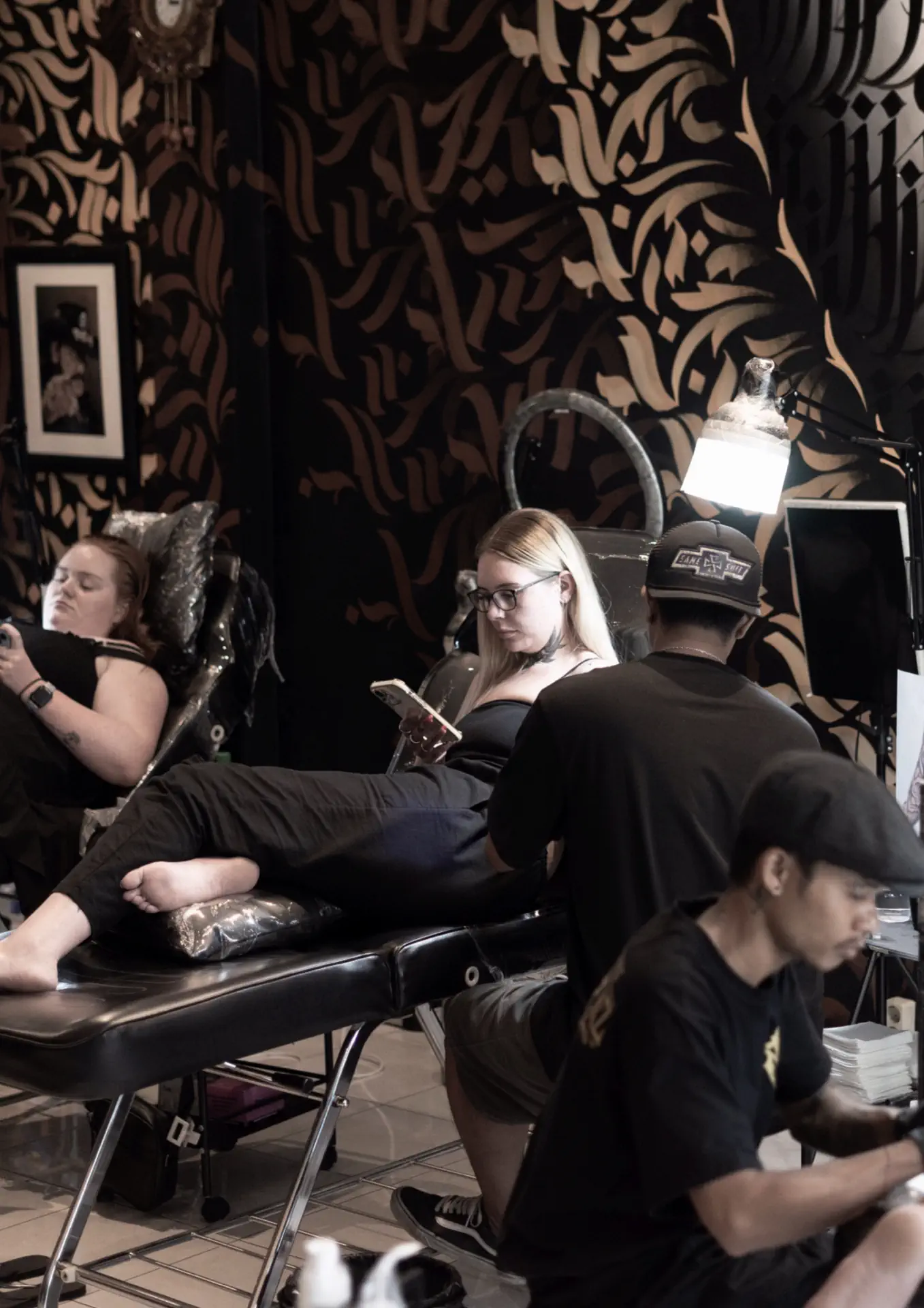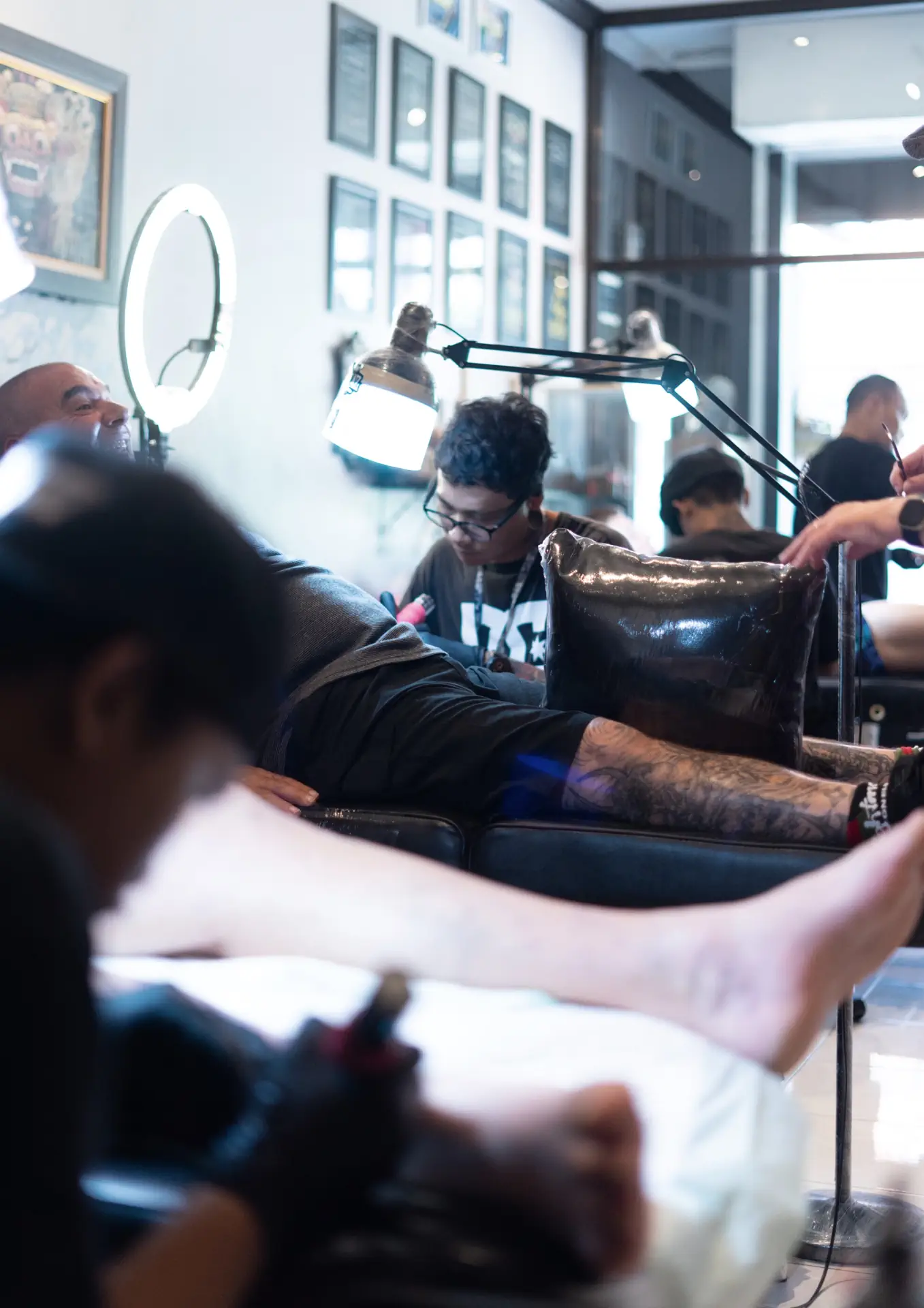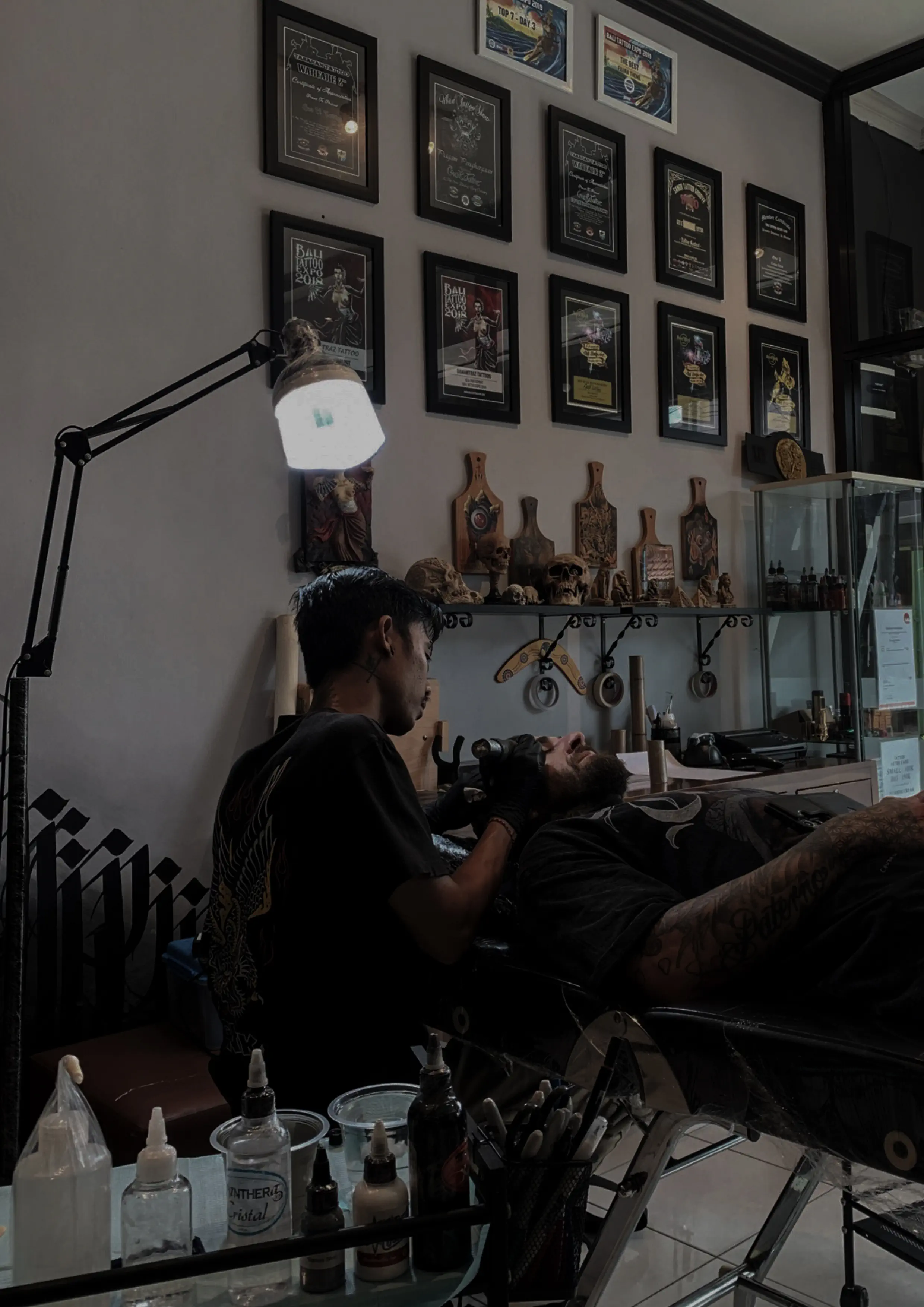TAT'S CARE

What Not to Do Before Your Tattoo Session
1. No Alcohol or Blood Thinners
Avoid alcohol and medications like aspirin for 24-48 hours before your appointment—they can thin your blood and make you bleed more.
2. Don't Skip Meals
Eat a solid meal before your session. Tattooing on an empty stomach can make you feel dizzy or light-headed.
3. Limit Caffeine
Too much caffeine can make you jittery and affect your ability to sit still. It can also thin your blood slightly.
4. Avoid Sunburn
Keep your skin protected from the sun. Tattooing over sunburned skin is painful and can affect healing.
5. Don't Shave the Area
Let your tattoo artist take care of shaving. Shaving on your own may cause cuts or irritation.
6. Skip Intense Workouts
Rest your body before your session. Sore muscles can make sitting still uncomfortable.
7. Don't Apply Heavy Moisturizers
Avoid thick creams or oils on the day of your appointment—they can interfere with the tattoo process.
8. Limit Guests
Bringing too many friends can be distracting. It's best to keep it minimal.
9. Don't Stress
Give yourself plenty of time and come relaxed. Tattooing is a process that's best enjoyed without rushing.

Tattoo Aftercare
1. Keep the Bandage On
Leave the bandage on for 2-4 hours to protect your tattoo.
2. Gently Wash
Clean your tattoo with lukewarm water and mild, fragrance-free soap. Pat dry with a clean towel or air dry.
3. Apply a Thin Layer of Ointment
Use a recommended ointment (like Aquaphor or Bepanthen) in a thin layer to keep the tattoo hydrated.
4. Moisturize Regularly
After a few days, switch to a fragrance-free lotion. Apply 2-3 times a day to prevent dryness.
5. Avoid Soaking
No swimming, baths, or hot tubs until your tattoo is fully healed (2-4 weeks). Showering is fine, but avoid direct water pressure on the tattoo.
6. Protect from the Sun
Keep your tattoo out of the sun while healing. Once healed, always use sunscreen to prevent fading.
7. No Picking or Scratching
Let scabs and peeling skin fall off naturally. Don't pick or scratch to avoid damaging the tattoo.
8. Wear Loose Clothing
Choose loose clothing to avoid rubbing or irritating your tattoo.
9. Stay Hydrated & Healthy
Drink water, rest well, and maintain a healthy lifestyle to promote healing.
10. Contact Us if Needed
If you notice excessive redness, swelling, or any concerns, reach out—we're here to help!

